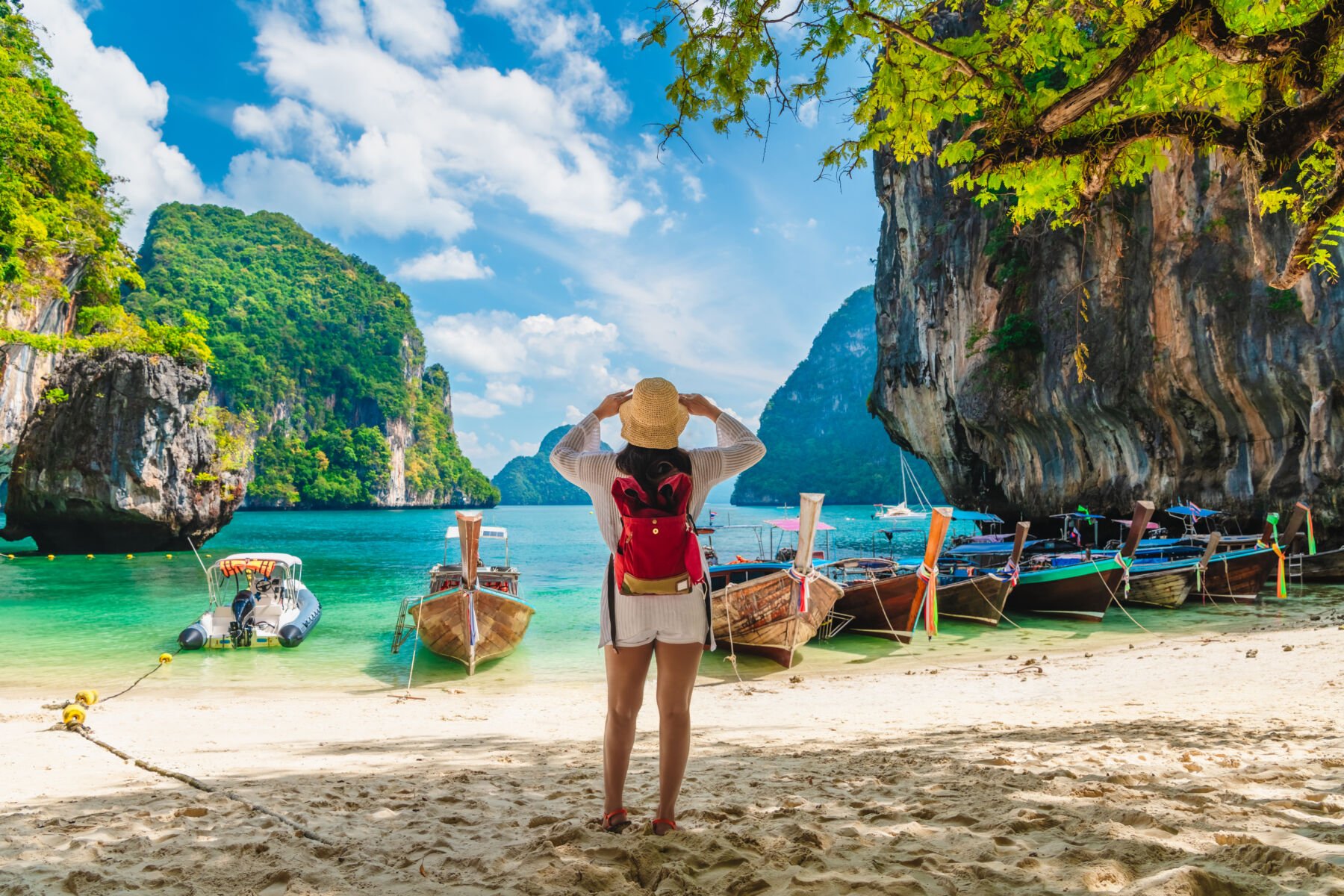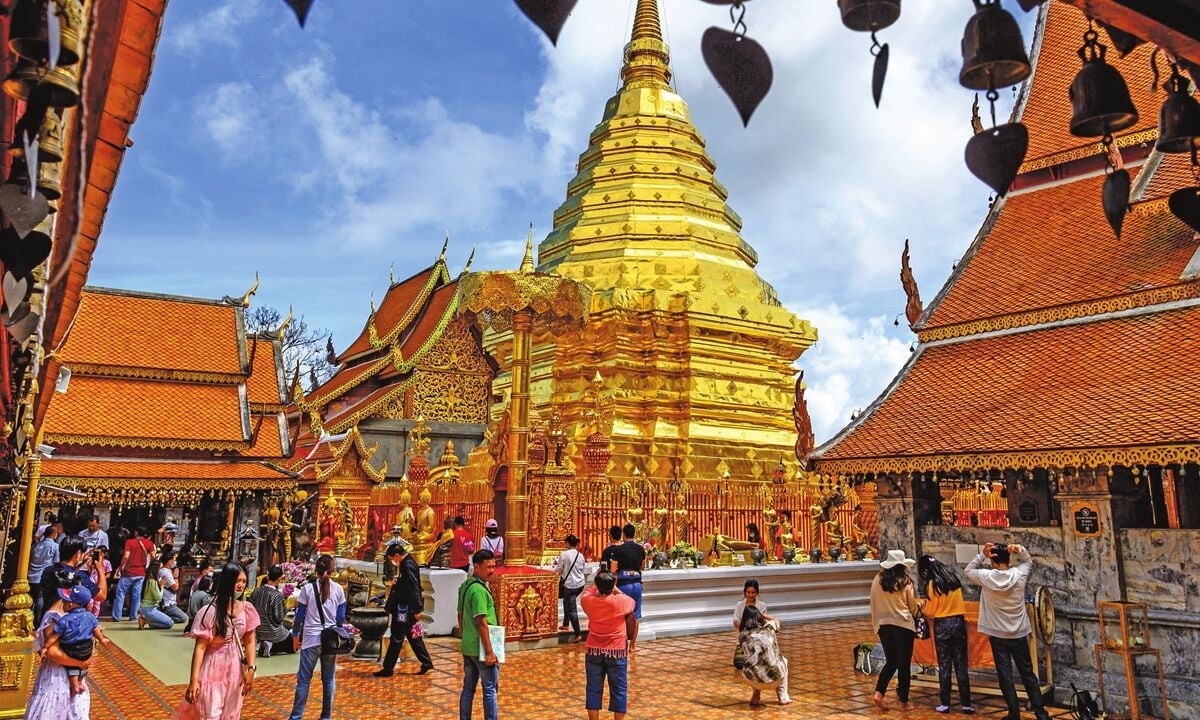Thailand’s tourism shake-up: Private sector dives into man-made marvels

Thailand is gearing up to revamp its tourism scene with a fresh array of man-made attractions, and the private sector is already jumping on board. The government is drawing up plans for entertainment complexes that will include legal casinos, marking a bold new direction for the country’s tourism strategy.
Private firms are keen to get in on the action. Asset World Corp unveiled plans to build a family-friendly water park in Chiang Mai. Meanwhile, the Tourism Council of Thailand is betting on these new investments to boost domestic tourism, following a successful model seen in China.
These upcoming projects give Thailand the chance to move beyond its traditional attractions and stay ahead of shifting tourism trends.
Somradee Chitchong, Deputy Governor for Domestic Marketing at the Tourism Authority of Thailand (TAT), praised the potential of man-made attractions. She highlighted water parks, skywalks with breathtaking views, art spaces, and educational centres as examples of what’s on the horizon.
“Not all provinces have abundant beautiful natural resources to lure tourists. Some places require promotion and man-made development.”
Wuthichai Luangamornlert, board chairman of the International Association of Amusement Parks and Attractions, noted that there are opportunities for man-made developments in Thailand to attract all generations. He mentioned major tourism destinations like Phuket, Bangkok, and Chiang Mai as prime locations for these new attractions.
“Each family member tends to have different preferences. Some may want to visit natural sites, while others prefer cafes, gaming centres or bars to watch entertainment.”

The uncertain global economy has caused investors in Thailand and Southeast Asia to slow down their developments, cautiously proceeding with new projects delayed by the pandemic. Wuthichai pointed out that the economic outlook has led to lower disposable incomes and budget cuts for leisure activities, including at amusement parks.
In Thailand, some amusement park and water park operators have temporarily suspended services on weekdays or during the low season to save costs. Many also offer promotions to maintain healthy traffic, said Wuthichai.
Wuthichai, who also owns Siam Amazing Park, noted a decline in foot traffic at Thai amusement parks this year, with revenue expected to drop by 30-40% in 2024 year-on-year.
“Global trends show development shifting from standalone theme parks and attractions to mixed-use projects with all-inclusive programmes. Thailand doesn’t have many projects of this type,” he said.
Mixed-use projects, such as Ocean Park Hong Kong, encourage longer stays and higher spending by offering a range of attractions within one space. Grande Centre Point Space Pattaya and Nong Nooch Tropical Garden are examples of Thai developments integrating multiple attractions to draw tourists.
While the Thai government considers a large entertainment complex that includes a casino, Wuthichai noted that other nations in the region already offer similar products.
“Having an entertainment complex in Thailand is better than not having one, and such products can increase tourism spending and extend lengths of stay,” he said.
Family-friendly
However, Wuthichai expressed uncertainty about the government’s focus, questioning whether it aims to create a family-friendly complex or prevent Thais from gambling overseas. He suggested that prioritising families would yield more benefits, citing successful examples from Singapore, Macau, and Las Vegas.
“Not many people would stay in a casino for a whole day.”
Wuthichai has called for clear-cut regulations on casino space, location, and entry policies before launching any new complexes. He stressed that a public hearing with stakeholders is crucial to nail down the specifics.
Meanwhile, local communities and authorities are getting creative with their attractions to celebrate local culture. Patara Suwannakarn, Managing Director of Peranakan Phuket Museum, has launched an interactive museum dedicated to Peranakan culture. The museum features retail spaces, a cafe, a restaurant, and even a jewellery shop, said Patara.
“Phuket isn’t just about its beaches and sea anymore. Visitors are increasingly interested in exploring local cultures.”
The museum attracts guests from partner hotels and school tours, with locals contributing furniture and garments for display. The recovering tourism sector has seen visitor numbers soar, already surpassing last year’s total in just eight months,said Patara.
“Museums are a niche market and take time to turn a profit. We can’t rely solely on ticket sales, so we need alternative revenue streams to keep the business afloat.”
Peranakan-style weddings
In addition to its exhibitions, the venue hosts Peranakan-style weddings and plans to enhance the visitor experience with an organic farm and learning centre.
Thailand is quickly becoming a hub of top-notch learning spaces and man-made attractions for both locals and tourists. Institutions like Museum Siam offer training for museum operators and curators, while local authorities invest in improving educational and tourism facilities.
Patara has urged the government to keep promoting cultural landmarks and museums, possibly enlisting influencers to showcase these attractions on social media.
Somradee noted that Thailand lags behind developed nations in modern man-made attractions. With more tourists travelling independently, these attractions face challenges with access and transport from popular destinations.
She recommended adding more activities to draw repeat visitors, highlighting how some museums and zoos host special evening events.
Wuthichai also pointed out the financial strains on smaller operators and suggested government support through budgets for meetings, sightseeing, and events, especially in lesser-known destinations. He called for updated investment regulations for theme parks, noting that current incentives favour industrial sectors, while theme parks need more time to see returns.
As Thailand continues to evolve its tourism landscape, visitors can explore a rich mix of natural beauty and innovative attractions.

Latest Thailand News
Follow The Thaiger on Google News:


























